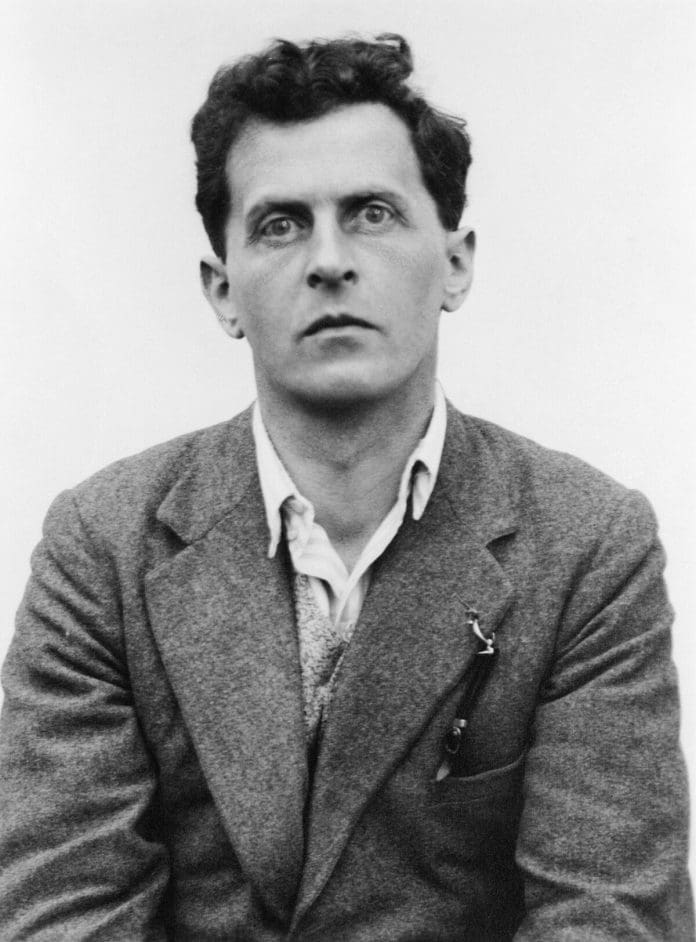The following is split into two parts. The first part is for those who have not come across Ludwig Wittgenstein before. The second part is for those who have some familiarity.
For Children
Have you ever played a game and realised that the rules aren’t as clear as you thought? Or tried to explain something but found that words just didn’t seem to work? That’s the kind of thing Ludwig Wittgenstein, a very clever philosopher, spent his life thinking about!
Who Was Wittgenstein?
Ludwig Wittgenstein was born in Austria in 1889 and died in England in 1951. He grew up in a rich family but decided he didn’t care much about money; he cared about ideas! He moved to England and became a famous thinker at Cambridge University. He was a bit like a detective, but instead of solving crimes, he solved puzzles about language and how we understand the world.
Words Are Like Tools
Wittgenstein said that words are like tools in a toolbox. A hammer, a screwdriver, and a ruler all do different jobs, just like words! The word “love” doesn’t work the same way as the word “chair,” and that’s okay. Words are useful in different ways, depending on how we use them.
The Rules of the Game
He also thought language was a bit like a game. When you play football, you follow certain rules. If you suddenly picked up the ball and ran, it wouldn’t be football anymore! Wittgenstein said words work the same way, they only make sense when we agree on how to use them.
Can Everything Be Said?
One of his biggest ideas was that some things are too deep or complicated for words. Imagine trying to describe the taste of chocolate to someone who’s never had it; you might say “sweet” or “creamy,” but that’s not the same as actually tasting it! Wittgenstein believed that some things just have to be shown, not said.
So next time you’re talking with friends or trying to explain something tricky, remember Wittgenstein’s ideas. Words are powerful, but they’re also a game we all play together!
Wittgenstein Revisited: Key Insights for the Philosophically Initiated
(For Adults and Enlightened Children)
Ludwig Wittgenstein’s work remains one of the most profound and challenging contributions to 20th-century philosophy. His two major works—Tractatus Logico-Philosophicus and Philosophical Investigations—represent not just an evolution of thought but a radical shift in how we approach language, meaning, and epistemology.
The Early Wittgenstein: The Picture Theory of Language
In the Tractatus, Wittgenstein proposed that language mirrors reality through logical structure. Propositions “picture” states of affairs, and anything beyond empirical fact is nonsensical, including much of traditional metaphysics. His famous closing line, “Whereof one cannot speak, thereof one must be silent,” underscores the limits of language while mysteriously hinting at the ineffable.
Yet, by the 1930s, Wittgenstein had come to reject many of his earlier claims. The rigid logical atomism of the Tractatus gave way to a more fluid, pragmatic understanding of language.
The Later Wittgenstein: Language Games and Forms of Life
In Philosophical Investigations, Wittgenstein introduced the concept of language-games—rule-governed linguistic practices embedded in social contexts. Meaning is no longer fixed by referential correspondence but arises from use. This shift dismantled the idea of a private language, arguing that meaning requires communal agreement within a form of life (Lebensform).
His critique of essentialism, exemplified by the discussion of family resemblances, challenged the search for universal definitions. Just as games share overlapping similarities rather than a single defining feature, so too do concepts like “truth” or “knowledge” resist reductive analysis.
Wittgenstein’s Legacy: Therapy, Not Theory
Wittgenstein saw philosophy not as constructing grand theories but as a therapeutic activity, unraveling conceptual confusions that arise when language “goes on holiday.” His method involved dissolving, rather than solving, philosophical problems by exposing linguistic misapplications.
Contemporary philosophy of mind, epistemology, and even cognitive science continue to grapple with his insights. From Kripke’s rule-following paradox to debates about AI and meaning, Wittgenstein’s shadow looms large.
A Philosopher of Depth and Paradox
Wittgenstein’s work resists easy categorisation. Was he a logical positivist, a pragmatist, or a quietist? Perhaps his true genius lay in his refusal to be pinned down: a thinker who dismantled the very foundations he once built, leaving us with a philosophy that is as enigmatic as it is indispensable.
“The limits of my language mean the limits of my world.” — Wittgenstein, Tractatus 5.6







